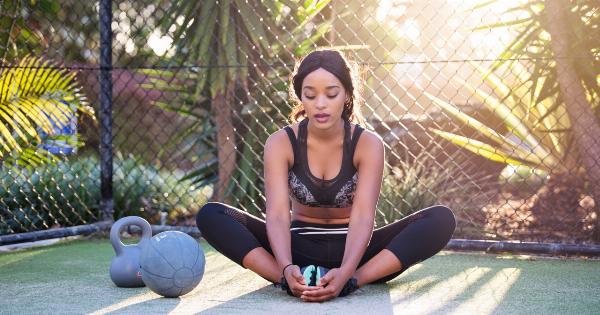Physical activity plays a vital role in maintaining overall health and well-being. It has been widely recognized that regular exercise has numerous benefits for both men and women.
In recent years, there has been a growing body of research exploring the relationship between physical activity and lifespan in females. This article aims to examine the impact of physical activity on the lifespan of women and discuss the factors that contribute to this association.
The Importance of Physical Activity
Regular physical activity has been shown to have a significant positive impact on various aspects of health, including cardiovascular health, weight management, mental well-being, and overall quality of life.
Engaging in moderate to vigorous physical activity on a regular basis has been associated with a lower risk of chronic conditions such as obesity, diabetes, heart disease, and certain types of cancer.
Effect of Physical Activity on Female Lifespan
A growing body of evidence suggests that physical activity can also influence the lifespan of women.
Several large-scale population-based studies have found a strong association between increased physical activity levels and a reduced risk of mortality among females. These studies have shown that women who engage in regular exercise have a lower risk of premature death compared to those who lead a sedentary lifestyle.
Cardiovascular Health and Physical Activity
One of the key mechanisms through which physical activity influences lifespan in women is by improving cardiovascular health.
Regular exercise helps maintain healthy blood pressure levels, reduces the risk of developing coronary heart disease, and improves the overall functioning of the cardiovascular system. The American Heart Association recommends at least 150 minutes of moderate-intensity aerobic activity or 75 minutes of vigorous aerobic activity every week for adults, to promote cardiovascular health and longevity.
Mental Well-being and Physical Activity
Physical activity has been found to have a positive impact on mental well-being in both men and women. Exercise stimulates the release of endorphins, which are natural mood enhancers, and promotes better sleep.
Engaging in regular physical activity can reduce symptoms of depression, anxiety, and stress, thereby improving overall mental health and contributing to a longer lifespan.
Impact of Physical Activity on Weight Management
Physical activity is a crucial component of maintaining a healthy weight. Regular exercise helps burn calories, increase muscle mass, and boost metabolism.
Women who engage in regular physical activity are more likely to maintain a healthy body weight and have a lower risk of obesity-related health issues such as diabetes and certain cancers. The combination of physical activity and a balanced diet is key to achieving and maintaining a healthy weight and increasing lifespan.
Hormonal Factors and Physical Activity
Female hormones, such as estrogen and progesterone, play a significant role in women’s overall health and lifespan. Regular physical activity has been shown to positively influence hormonal balance in women, particularly during menopause.
Exercise can help reduce the severity of menopause symptoms and decrease the risk of developing age-related health conditions, such as osteoporosis and cardiovascular disease. It is important for women to engage in weight-bearing activities, such as walking or strength training, to maintain bone health and minimize the risk of fractures.
Social Support and Physical Activity
Physical activity often involves social interaction and can provide an opportunity for women to connect with others, fostering a sense of belonging and support.
Participating in group exercises, sports activities, or fitness classes not only promotes physical health but also contributes to overall well-being. The social aspect of physical activity can have a significant impact on mental health and can positively influence a woman’s lifespan.
Age-related Benefits of Physical Activity
Engaging in regular physical activity throughout a woman’s lifespan offers numerous benefits at different life stages.
For younger women, physical activity can help build strong bones, improve muscle strength and coordination, and establish healthy lifestyle habits. As women age, physical activity becomes crucial in maintaining overall health, reducing the risk of chronic conditions, and preserving cognitive function.
Regular exercise can alleviate age-related functional decline and improve mobility and independence in older women.
Barriers to Physical Activity in Women
Despite the well-documented benefits, many women face barriers to engaging in regular physical activity. Some common barriers include lack of time, family responsibilities, work commitments, and societal expectations.
It is essential to address these challenges and create an environment that supports and encourages women to prioritize physical activity in their daily lives.
Conclusion
Physical activity plays a critical role in promoting a longer and healthier lifespan for women. Regular exercise contributes to cardiovascular health, weight management, mental well-being, hormonal balance, and overall quality of life.
Creating an environment that supports and encourages physical activity among women is crucial to harnessing the associated benefits. By overcoming barriers and prioritizing physical activity, women can significantly improve their overall health and increase their lifespan.































